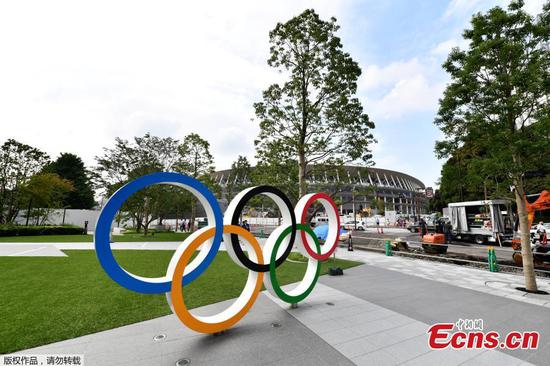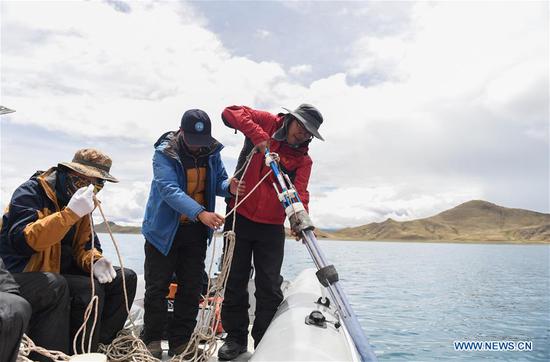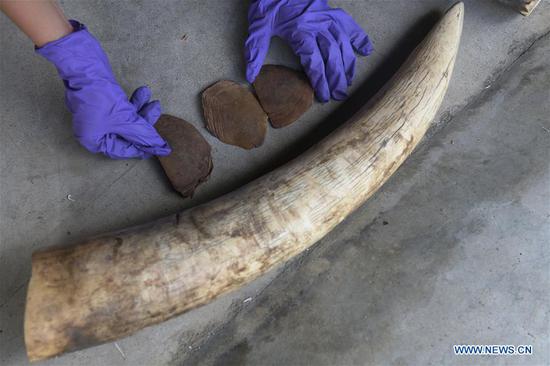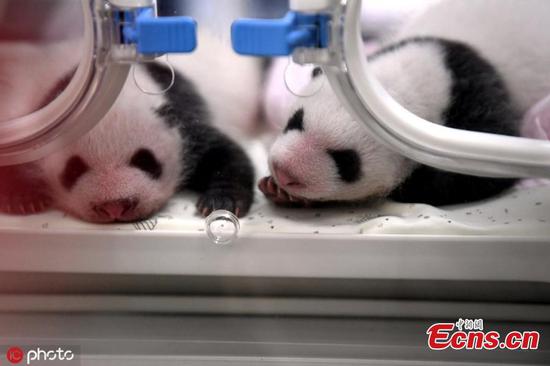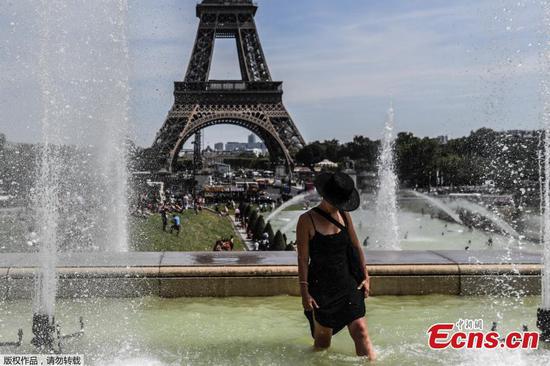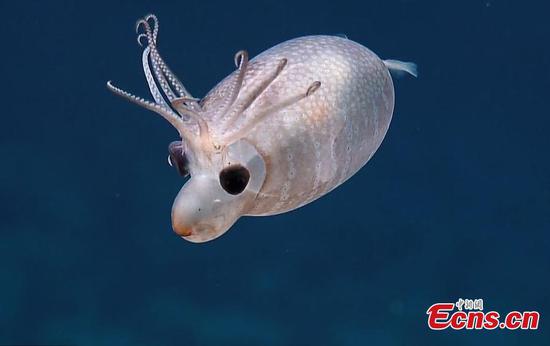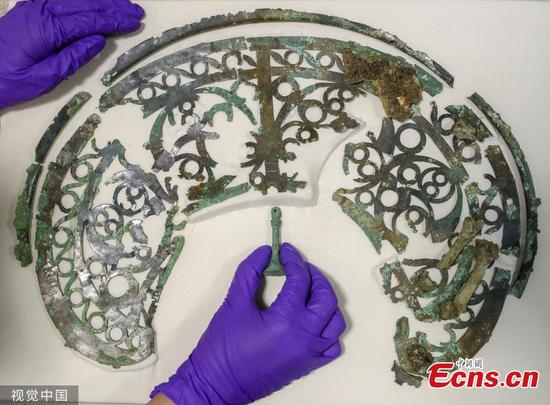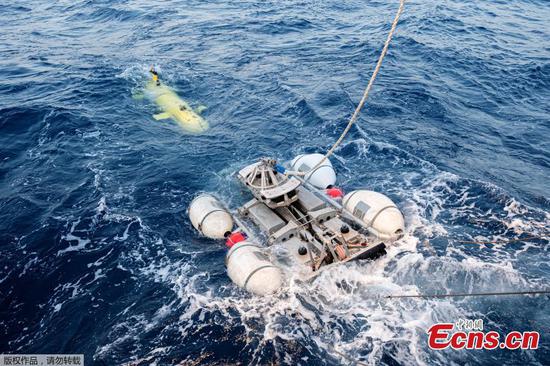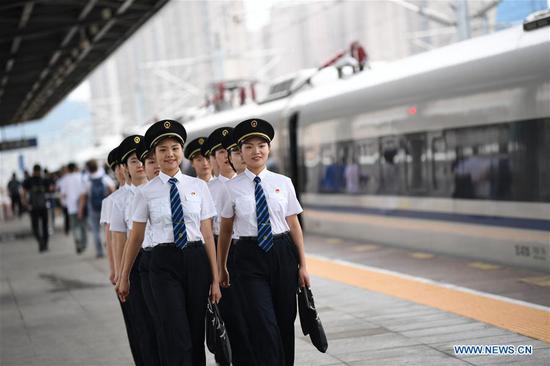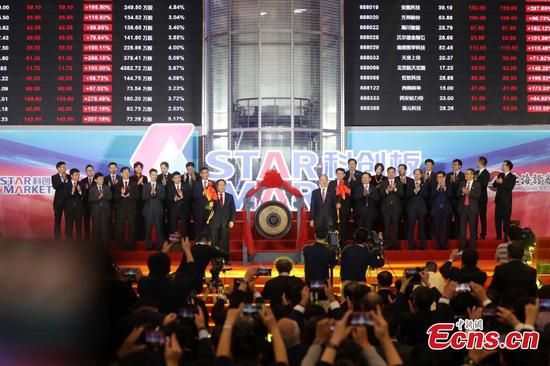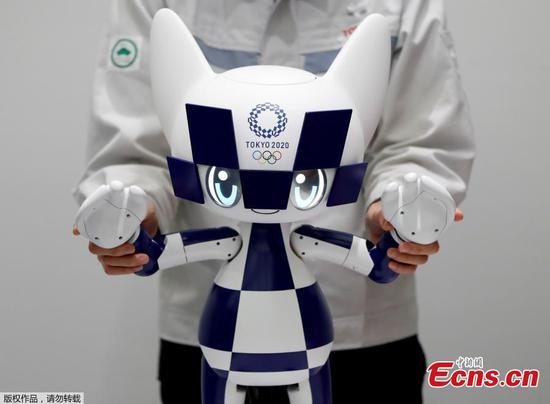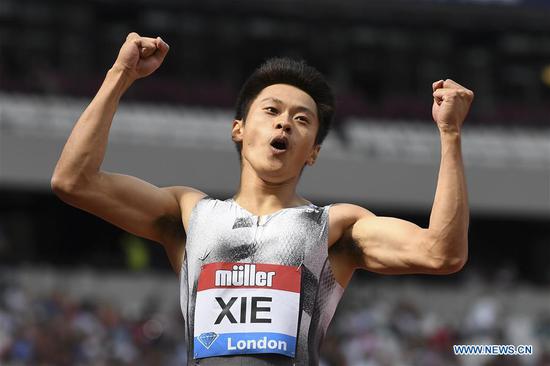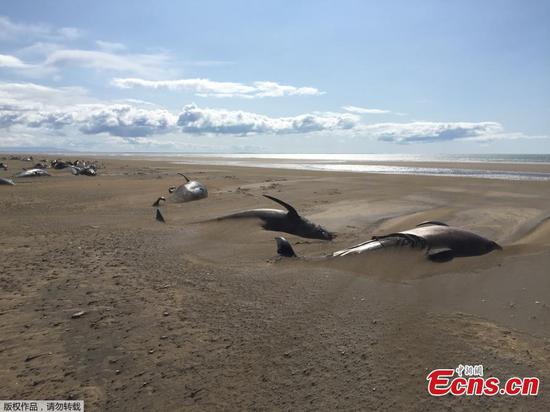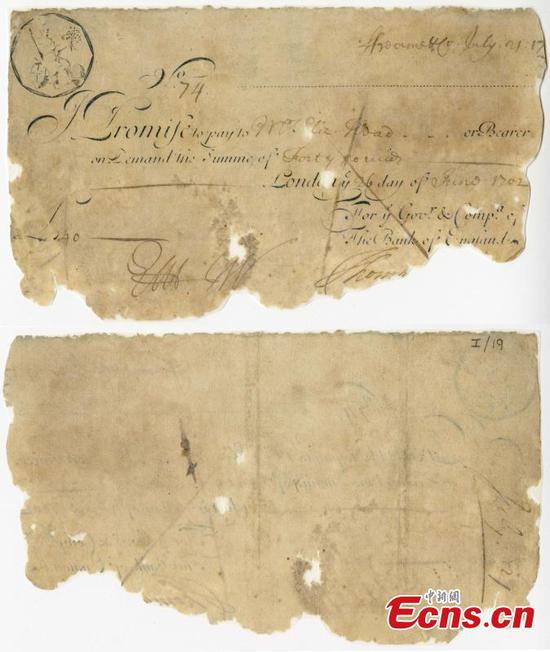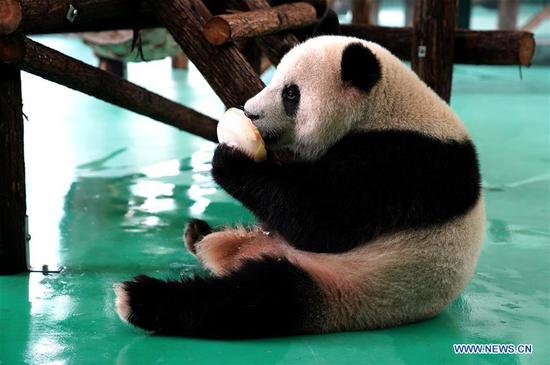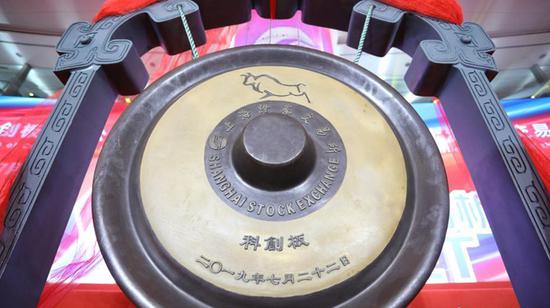It may be a bittersweet moment for Boris Johnson when he becomes prime minister of the United Kingdom on Wednesday.
He will have realized a decades-long dream at an inopportune time for any leader hoping to establish a diverse and positive legacy, as the increasingly nightmarish process of Brexit drags on.
Johnson, who often labels himself an optimist, centered his successful leadership campaign around a pledge to take the UK out of the European Union on Oct 31, with or without a deal in place with the EU.
How he will make this happen remains to be seen.
Johnson has revealed few firm details concerning his plans to negotiate with Europe, or craft legislation that will appease a divided Parliament.
"Johnson's first actions on Brexit are likely to be a whistle-stop tour of Brussels, Dublin, Berlin, and Paris to try and garner support for reopening the withdrawal agreement," said Professor Alex de Ruyter, director of Birmingham City University's Centre for Brexit Studies.
Immediately following Johnson's victory on Tuesday, the European Commission's first vice-president, Frans Timmermans, told reporters in Brussels: "The position of the EU is clear: the UK reached an agreement with the EU and the EU will stick with that agreement."
Johnson's stated willingness to proceed with a no-deal Brexit is seen by some in Parliament as reckless and has led to the resignation of three Conservative Party ministers during the last two days, with Chancellor of the Exchequer Philip Hammond expected to follow suit in due course.
De Ruyter believes Johnson could be hit with a motion of no-confidence if he proceeds with a no-deal withdrawal. And faced with a hostile Parliament, Johnson could also be forced down the route of agreeing to another referendum.
If and when the UK extricates itself from the EU, which is the world's largest trade bloc, Britain's relationship with China will be more important than ever, according to Rana Mitter, director of the University of Oxford China Centre.
Mitter said he expects Johnson will want to "ramp up the relationship with China and make it more prominent".
"He will want to make it clear that the UK is going to be a major trading nation after Brexit," said Mitter. "I think you will hear in the near future a lot of very positive noises, a lot of rhetoric about doing a deal with China."
In his former roles as mayor of London and foreign secretary, Johnson was a strong advocate of free trade with China, as well as investment from Chinese companies into the UK.
"It's not something we should be afraid of, Chinese investment, but something that is a positive," Johnson said while mayor.
He welcomed Chinese involvement in several high-profile infrastructure projects in the capital, including a 1.7-billion-pound ($2.1 billion) Chinese business park in Royal Albert Dock.
"For China, the UK-China relationship acid test is if infrastructure will be as prominent with Boris Johnson's government as with the previous administration," said Chris Bovis, professor of international business law at Hull University.
Bovis said that Johnson's handling of two issues in particular will impact the course of UK-China relations, namely continued Chinese involvement in the UK nuclear power program, and the participation of Chinese telecommunications company Huawei in British 5G networks.
"If those two continue, you expect the relationship will remain on the same path," said Bovis.
The UK government has faced pressure from the United States to ban mobile operators from using Huawei equipment in 5G networks, due to security concerns. The government was expected to deliver its verdict on Huawei on Monday with the release of a telecoms supply chain review but the decision was again postponed.
"In terms of Huawei, Theresa May has essentially left that issue to Boris Johnson," Mitter said.
He said Johnson's government will want to weigh up the economic impact of a Huawei ban, which would cost the UK economy an estimated 7 billion pounds ($8.7 billion), and also consider the implications of souring relations with either China or the U.S..
"The U.S. has made it clear that, as things stand, that it is hostile to Huawei being part of that infrastructure, but that signal has changed slightly in the last couple of weeks," said Mitter. "(U.S. President Donald) Trump has gone from a hard line on the issue, to now saying some of the (Huawei) deals with American suppliers can be started up again."
De Ruyter says that if the UK leaves the EU without a deal, Johnson will be "desperate to enter negotiations with China to secure a trade deal", but that Johnson's perceived closeness to Trump could mean the UK would move closer to the U.S. position on trade and security issues, thus putting pressure on the UK-China relationship.












